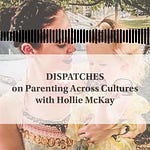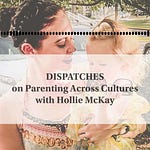This dispatch will be answering questions that have been asked of Hollie on the Internet.
What are the primary concerns of everyday people? What are the main issues tribal leaders, government leaders, etc. are dealing with? Are the concerns of the leaders aligned with their people?
I think at the end of the day, everybody is most concerned about the sort of the economic crisis and the humanitarian crisis that's really plaguing Afghanistan. Once the Taliban took over and the US left, all the aid was frozen, and so there really is no money coming in. There's a hard cash crisis.
Afghans are really feeling that every single day. It's getting worse and worse. Just the cost of bread, or the cost of rice, and simply basic things are going up. People don't have jobs. Unemployment is high and you really are seeing that manifesting on the street, and I think that's the crisis.
It also plagues the Taliban and tribal leaders. I've spoken to many, and the first thing that they will bring up is our crops aren’t growing, or we can't sell, or things like that.
I really think at the end of the day the economy is the number one concern on all levels. And then obviously you have security elements too. People are just wanting to feel safe and secure and to try to live their life and freedom, which is something that a lot of people are not sure that they can do and are still slowly adjusting to this new world.
So, I would say economy number one. And then security elements a close second.
Are other foreign powers like Iran/Russia/China moving into the power vacuum left by the United States?
I think, well, Russia, China, and Iran. Obviously, they're sort of a bit closer in the neighborhood, say than the United States, so they've always had some form of relationship with the Taliban. That was obviously underhanded while the other Gulf government was in power. But you're certainly seeing bolder steps from them, particularly Russia and China.
At this point, Iran seems to be fairly quiet. But you are definitely seeing bold steps from China; I would say they are sort of number one. The Taliban have been pretty quick to talk to the Chinese. They talk to the Afghans. They have a lot of interests, loans, and mines that they've already had leases on from many years ago. They have a lot of infrastructure and economic business interests here.
Russia is sort of slowly and navigating its diplomatic relationship with the Taliban as well. All those three countries still have embassies here. They've kept that diplomatic door open. I certainly think going forward for the United States, for some time, America is not going to have much of a footprint.
In Afghanistan, I think you will see these three countries take the power reigns as much as they can with the Taliban, or at least develop good relations.
What has become of the military bases? Abandoned? Repurposed by the Taliban? I was in Khost at FOB Salerno in 2011 and really enjoyed reading about it.
I was in Khost a few weeks ago. The military bases there; some of them have a Taliban presence. Most of them are abandoned. Of course, all of them pretty much, wherever you go, there's certainly a Taliban flag that's rising high above all the bases, regardless of their state.
A lot of these bases have endured a lot of fighting. There's not much left of them, particularly from the last takeover between the Afghan forces and the Taliban. There are so many bases it's really hard to put them under one umbrella. Certainly, in many places, the Taliban have taken over. They've moved all their forces in. They've got their armored vehicles and their weapons and are of running things.
But also obviously, the need for the number of bases that were there before has changed. I don't think the Taliban has that need anymore. Because technically, this is not a country at war the way that it was previously. So, there's a mix between the Taliban taking bases over and others just being left abandoned.
But you can pretty much rest assured that there will be a Taliban flag flying high at every single one of them.
How does covid seem to be affecting things there? I haven’t seen any reporting on it.
To be honest, there really isn't a lot of COVID here. I think when I speak to hospitals, they will say obviously when that sort of surge was happening in the spring of 2020, Afghanistan did suffer a lot from COVID, and the hospitals were overflowing, and they certainly were a number of deaths.
But I think after that period things became really fixated on the growing or deteriorating security situation, so therefore COVID really did go away.
It’s sort of a bit of a joke. One of the officials running security in Kabul said, in the beginning, “There's no COVID here.” Since the Taliban came, another journalist here also made a joke about the Taliban saying, “Even COVID ran away from you.”
It's quite true, I don't hear people talking about it. It's just not something that people really discuss. You don't hear a lot about people saying relatives died of it, although that certainly happened; but I think living in Afghanistan, you do develop a quite a strong immunity, so to speak. And it's quite a young population, so I don't think Afghanistan was as badly hit as even neighboring Pakistan was.
COVID is very far down the priority list of Afghans. They are simply trying to survive.
How do you stay detached from the things you write about in Afghanistan? Or do you think feeling connected helps to make more compelling writing?
I'm certainly not the journalist that stays detached. I understand that's sort of a coping mechanism that a lot of journalists use, and I think that school of thought certainly is probably a little bit more old school.
These days a lot more humanity does get injected into the narrative and it's a lot more acceptable for journalists to be a lot more involved with the subject, or to really empathize.
For me as a writer, my job is to storytelling and convey a lot of these human experiences; and therefore, I don't want to be that disconnected.
It certainly has its drawbacks. When you are very immersed into a story, but as a writer, that's the approach that I take, and that's how I can best tell stories.
But there is a degree of compartmentalization that you take into it. You must know your boundaries. You can't take on jobs that are outside your realm. You can't take on the hubris of thinking you need to completely change things or change policy. All I can do as a as a writer is just tell the story, convey that message, and hope that people take heed respond to that.
I think that requires a level of detail and really a deep level of compassion.
How has movement of people between towns and cities changed? Communication with others in the country or in the exterior? Is there much difference or is it relatively the same. Thank you for all you do and for the information and stories you provide! It is quite enlightening and a daunting task! You and your team are such an inspiration for others and other women in male dominated fields/areas! Thank you!
Good question. I would honestly say that the communication within the country, it's sort of the same as it's always been. Afghanistan tends to have five or six different major cell phone providers, and it's a bit of a juggle because each place you go people will often take multiple SIM cards.
For example, in Kabul there's a provider, Telia Sonera. Sonera is the best provider for Kabul. Then you go just outside the city, you can get zero service with Sonera. The only service that will work will be Etisalat, and then you go to a different province and its Afghan Wireless (AWCC), or just the different networks in different places, so it's a bit of a juggle in that respect.
But the communication still stands, and the cell towers still stand. We still have Internet in the majority of places.
Obviously in in rural areas, it's a lot more challenging; but, communication within the country has stayed the same. Thank goodness for the World Wide Web, because that enables us to have this conversation right now, and also connect in different areas.
So, for now, our communication is relatively the same and we'll have to keep an eye on it going forward to see if this stability stays.
Are you ever frightened Hollie?
I definitely say you that should not go into this work if you are never frightened. You should have a healthy amount of fear for those situations that warrant fear. I think that if you're going into a situation completely fearless, you probably shouldn't be there. Fear is there for a reason. It makes us very aware of our surroundings, and hopefully, propels us into making smarter decisions to get ourselves into a safer situation.
So I'm definitely not fearless. But I think you have to perfect this balance of not panicking in situations and trying to think with a level head. Maintaining your calm is very important. I would not say I'm never frightened, but I think that you have to manage it in a way that's appropriate to the situation.
To make the best decisions, you must be able to think clearly.
Thanks again for your support!
Follow me on Instagram and Twitter for more updates
Photos courtesy of @JakeSimkinPhotos. Please consider a paid subscription to allow us to continue this work.
















Share this post